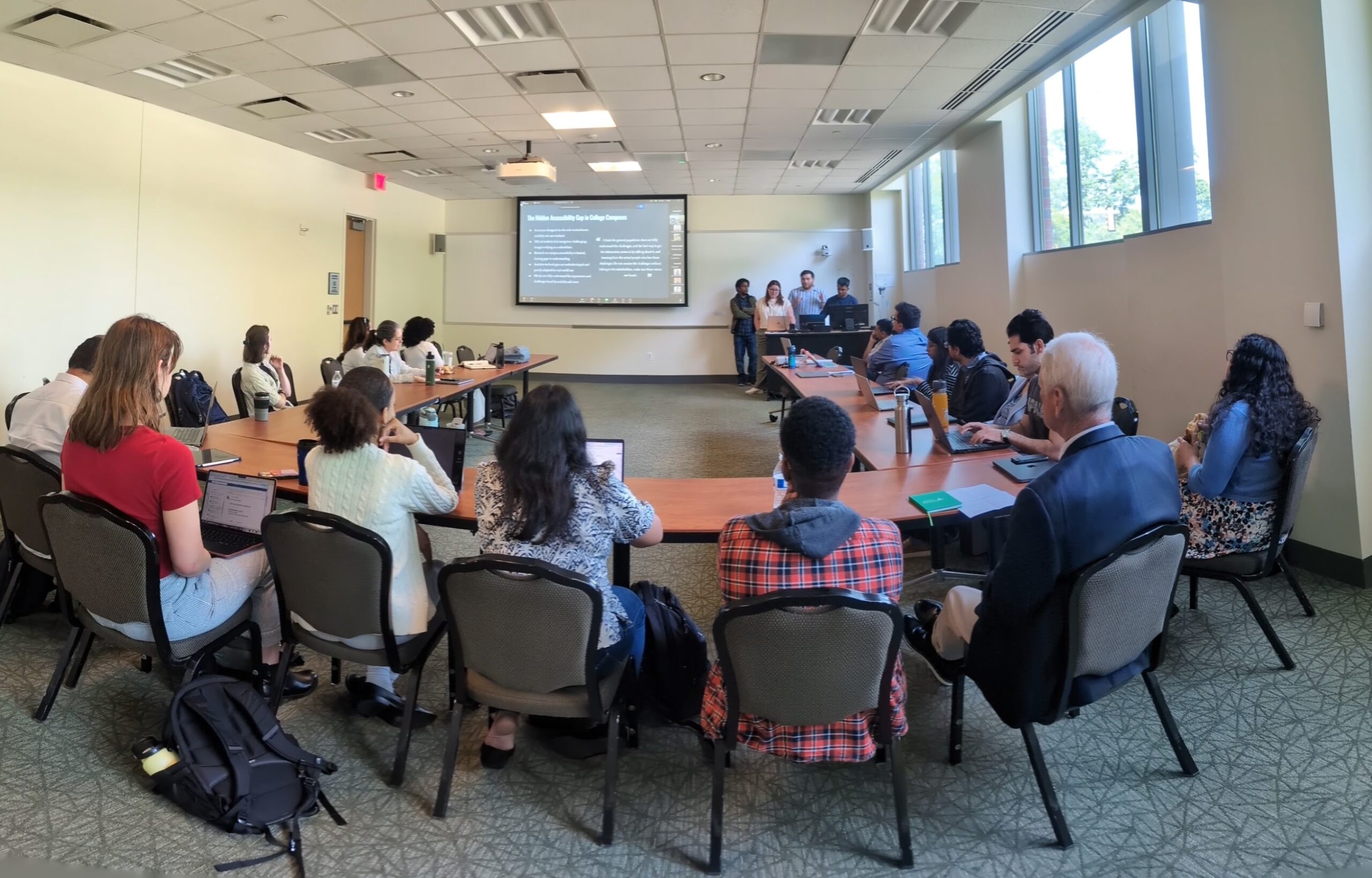Congrats to Brady!
Abstract:
This thesis examines the accessibility of automatic door systems and related campus infrastructure for mobility-impaired students at George Mason University (GMU), highlighting how design flaws affect navigation ease. Despite ADA compliance, mobility-impaired students at GMU continue to encounter substantial barriers, including uneven pathways, broken elevators, and malfunctioning automatic door systems. This mixed-methods research combines experimental field tests, participant feedback, and real-world navigation assessments to investigate these challenges and develop actionable recommendations for GMU. Mobility-impaired students documented their experiences navigating campus and assessed automatic doors, focusing on button placement, door timing, and system response efficiency. Data was collected through qualitative observations, self-reported exertion levels, semi-structured interviews, and quantitative measures of navigation time and accessibility trends. The results of the first study, based on participant interviews and qualitative feedback, identified four major themes: the malfunctioning of accessibility features, inadequate communication and maintenance of these resources, lack of disability representation in campus design, and the negative psychological impact of navigation barriers. Thematic analysis of these interviews showed how these factors contributed to feelings of exclusion and frustration among participants. The second study, which involved a detailed analysis of automatic door systems, identified critical design flaws such as poorly placed buttons and slow response times, leading to delays and unnecessary physical exertion. Findings indicated that improvements in door responsiveness and button placement could significantly reduce navigation times and physical strain, while enhanced signage and maintenance were essential for improving overall campus accessibility. These findings underscore the need for proactive, user-centered design improvements that extend beyond ADA compliance. The study generated actionable recommendations aimed at optimizing accessibility features, including automatic doors, and contributes to creating a more inclusive campus environment at GMU. The results also provides a model for other institutions seeking to improve accessibility for mobility-impaired individuals.

